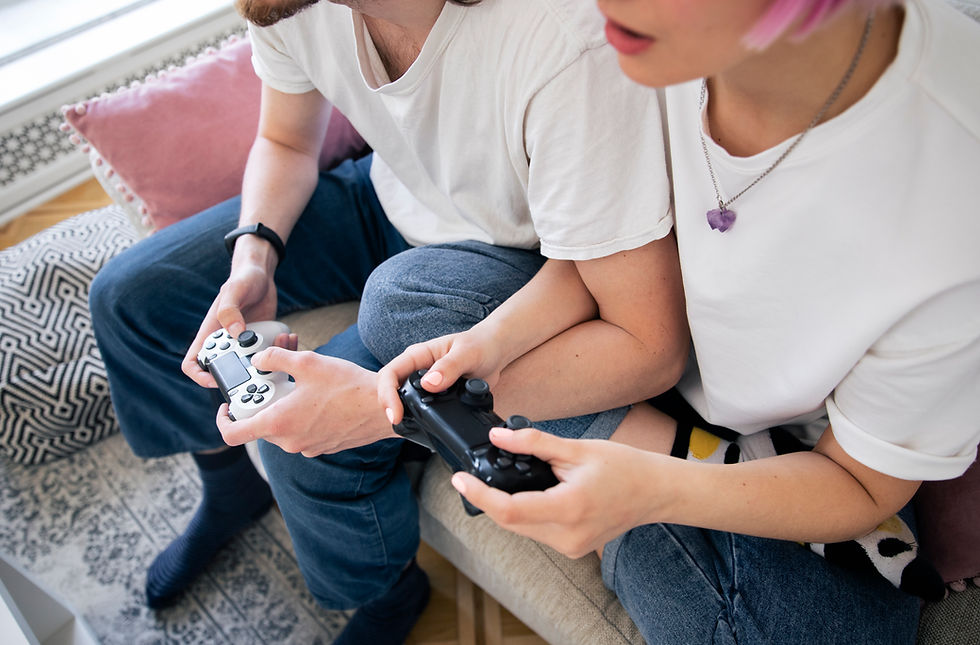Does Gaming Really Ruin Your Child’s Grades? The Truth About Gaming and Academic Success
- Hess Academy

- Aug 5
- 3 min read

Is Gaming the Real Problem?
Video games such as Minecraft, Roblox, and Fortnite have often been blamed for falling grades and lack of focus among students, but the reality is far more nuanced. Studies suggest that moderate gaming doesn’t necessarily harm academic performance. In fact, in some cases, games that challenge critical thinking and decision-making may even boost problem-solving skills.
So, why does gaming get such a bad reputation?
It often comes down to how much and when students play. Gaming late into the night, for instance, can severely disrupt sleep — which in turn affects focus, memory, and mood. Without proper time management, even the best students may find themselves falling behind.
Shorter Attention Spans — Is Gaming the Culprit or the Escape? — Singapore Insights
📊 Singapore Study Highlights
A longitudinal study tracking over 2,500 primary and secondary school students in Singapore revealed that gaming has both positive and negative effects on academic performance, depending on the type, duration, and context of gaming. The study highlighted the following key findings:
Students often turned to gaming as a coping mechanism to manage academic stress, burnout, or emotional fatigue.
The resulting negative patterns — such as reduced sleep, poorer school performance, and decreased attention span — were symptoms of escapism, not necessarily caused directly by gaming itself (source)
The findings revealed that noticeable issues such as sleep deprivation and declining academic performance were often signs of a deeper problem: Escapism.
Many students turned to video games as a way to manage everyday stress and mental health challenges. Such candid experiences illustrate that gaming often fills emotional gaps caused by intense academic pressure.
In essence, these issues often point to deeper underlying challenges. Gaming becomes a way for students to fill emotional gaps caused by the intense pressure of their academic environment. This suggests that excessive gaming is less likely to be the root cause of poor grades and more often a symptom of broader struggles related to stress and motivation.
Striking the Right Balance
Students don’t need to give up gaming entirely to do well in school. Instead, they need a clear structure that supports both academic success and downtime.
Here are a few tips for students (and families) to manage it wisely:
Set Clear Boundaries: Allocate specific gaming times, especially after homework or revision is done.
Prioritise Sleep: Avoid screens 1 hour before bed to improve sleep quality.
Stay Disciplined: Use tools like planners or apps to manage revision and gaming schedules.
Communicate Openly: Families should talk with, not at, students to find win-win solutions.
Understand Purpose: Is gaming a hobby—or a way to avoid study stress? Knowing the "why" helps manage it better.
🏆 The Real Secret to Academic Results
Gaming isn’t inherently bad. In fact, a healthy balance between study and play can actually improve mental well-being and productivity.
But if you’re wondering how to ace your exams, here’s the truth: it comes down to discipline, hard work, and strong time management skills. Those who manage their time effectively—regardless of whether they game or not—are more likely to succeed.
Founder of Hess Academy Terence and Teacher Naga take on the ongoing debate around screen time and school performance. Is it true that students need to give up gaming completely to succeed in their exams? Or is there more nuance to the story?
🎥 Watch our full podcast episode: Game Over for Grades? The Truth About Gaming and Academic Success



Comments